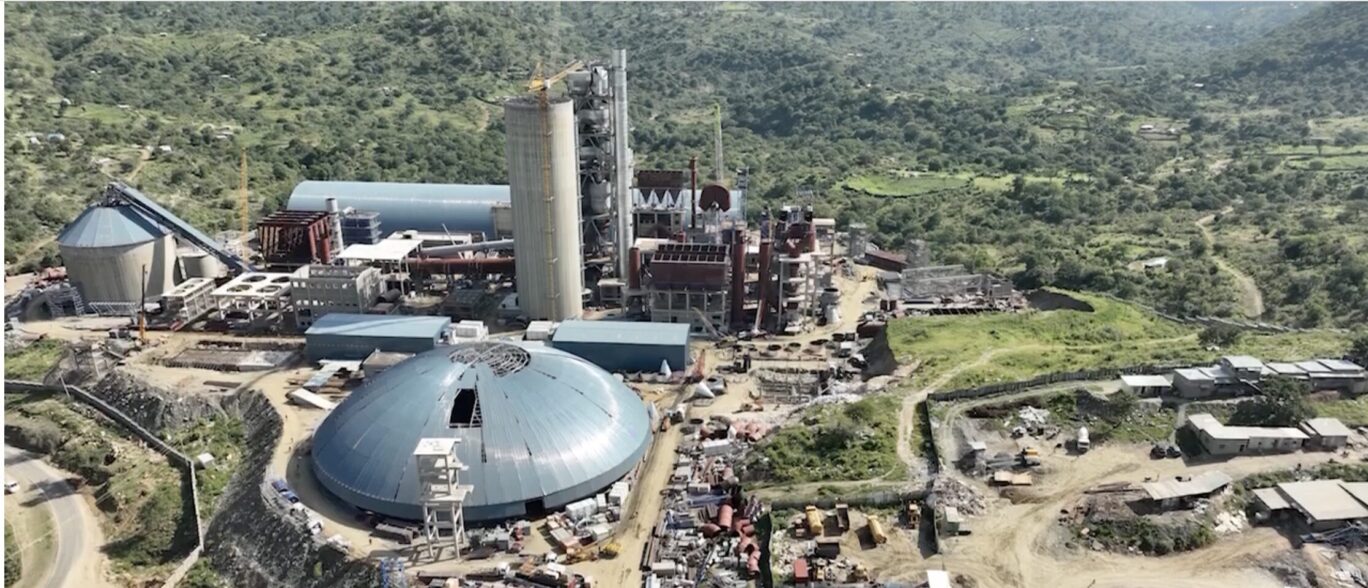Local industrial investments usher in a new era of economic growth in Kenya.

In the global economic landscape, Foreign Direct Investment (FDI) often takes the spotlight, yet the untapped potential of local industrialists remains a formidable force propelling economic growth. As evidenced by the remarkable strides of the Devki Group of Companies, spearheaded by Dr Narendra Raval, Kenya’s homegrown industrialists are proving to be catalysts for transformative change.
Devki Group’s recent inauguration of the Cemtech Limited clinkerisation plant in Sebit, West Pokot County, stands as a testament to the burgeoning potential of local investment. With a strategic vision focused on decentralisation and community empowerment, Dr Raval has not only revolutionised Kenya’s industrial landscape but also paved the way for a new era of economic development.
Central to the success of Devki Group’s ventures is the crucial role played by local financiers. Leading banks such as KCB and NCBA play a crucial role in enabling local entrepreneurs to realise their ambitious investment plans by providing essential funding and support. This symbiotic relationship between local financiers and industrialists highlights the importance of fostering homegrown talent and nurturing domestic enterprise.
The impact of Devki Group’s investments extends far beyond the confines of industrial production. By reducing reliance on imported clinker, Kenya’s leading import in the cement industry, local producers have the opportunity to positively influence cement prices. With access to locally sourced clinker at competitive prices, the cost of cement production is poised to decrease, translating into tangible benefits for consumers and the broader economy.
Moreover, the localisation of clinker production not only bolsters our self-sufficiency but also has profound implications for the country’s foreign exchange reserves. By curbing the need for clinker imports and exporting surplus production to regional markets, Kenya stands to enhance its forex reserves and reduce dependency on external sources.
Dr Raval’s emphasis on sustainable practices, exemplified by Devki Group’s waste recovery strategies, further underscores the company’s commitment to responsible industrial stewardship. By harnessing waste heat to generate power and implementing environmentally friendly production methods, Devki Group sets a precedent for ethical and sustainable business practices in Kenya’s industrial sector.
The inauguration of the Cemtech plant in West Pokot signifies a monumental achievement for Devki Group and heralds a new era of opportunity for Kenya’s local industrialists. As Dr Raval aptly states, the potential for homegrown investment to drive economic growth and foster national development is immense.
The rise of homegrown industrialists like Dr Narendra Raval and the Devki Group serves as a powerful reminder of Kenya’s untapped potential and the transformative impact of domestic investment. By leveraging local talent, fostering strategic partnerships with financial institutions and embracing sustainable practices, Kenya is poised to emerge as a beacon of economic resilience and self-reliance on the global stage.
Other notable investments
In 2022, Devki Steel Mills Ltd unveiled its groundbreaking Ksh 30 billion raw steel production facility, situated in the Samburu-Chengoni Ward, Samburu Sub-county of Kwale. This state-of-the-art factory is one of the largest in East and Central Africa and promises to revolutionise Kenya’s steel manufacturing landscape.
The facility, envisioned to create over 1,000 direct employment opportunities for local youth, boasts cutting-edge machinery capable of producing virgin steel within the country. Positioned as the second-best facility for virgin steel production on the African continent, after South Africa, it employs a process that requires no mixing, resulting in the creation of superior-quality wire rods and steel billets.
In another display of his commitment to advancing Kenya’s industrial landscape, steel billionaire Narendra Raval invested Ksh1.8 billion in upgrading a fertiliser plant acquired during the buyout of ARM Cement. This substantial investment, the latest in a series of multibillion-shilling endeavours by the tycoon, underscores his dedication to driving economic growth and innovation.
The upgrade of the fertiliser blending plant, which triples its production capacity to 300,000 metric tonnes annually, is a testament to Raval’s vision for expansion and diversification. This initiative follows National Cement Company’s acquisition of ARM Cement assets in Kenya, a transaction totalling Ksh 5 billion less than two years prior.
Formerly part of ARM Cement’s diversified portfolio, the fertiliser division now operates under the banner of Maisha Mineral Fertiliser Limited (MMFL), occupying an 11-acre site in Athi River, Machakos County. This strategic location positions MMFL to play a pivotal role in addressing Kenya’s agricultural needs while simultaneously contributing to the nation’s economic prosperity.

